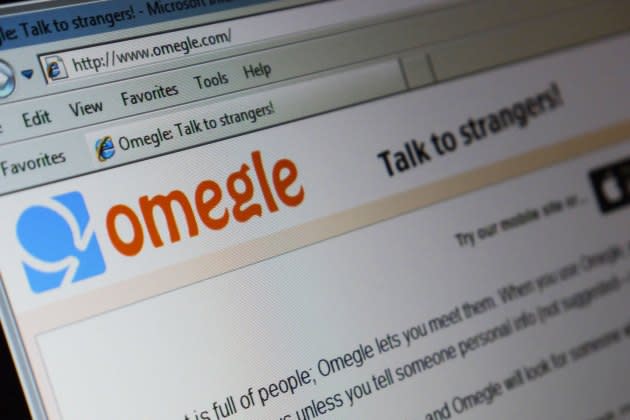Omegle Shuts Down Amid Child-Grooming Allegations

Omegle, the video-chatting platform favored by bored teens and perverts that randomly paired users around the world, shut down on Wednesday night after nearly 14 years in operation, according to a farewell message posted by the site’s owner.
In the lengthy message, which centers on the importance of preserving free speech on the internet, Leif K-Brooks, the owner of Omegle, attributed the shutdown to “a constant barrage of attacks on communication services, Omegle included, based on the behavior of a malicious subset of users.”
More from Rolling Stone
“I’ve done my best to weather the attacks, with the interests of Omegle’s users — and the broader principle – in mind,” Brooks wrote before stating, “as much as I wish circumstances were different, the stress and expense of this fight — coupled with the existing stress and expense of operating Omegle, and fighting its misuse — are simply too much. Operating Omegle is no longer sustainable, financially nor psychologically.”
Founded in 2009, Omegle was a video-chatting platform that operated similarly to ChatRoulette, in that it randomly paired users all over the world with each other for conversations. As social media became more widespread, the platform waned somewhat in popularity, but it made a comeback on TikTok, particularly during the height of pandemic lockdown, with people posting their bizarre encounters with other users halfway across the world.
Though the site was known for facilitating quirky chance encounters between strangers — even, according to Brooks’s statement, leading to people finding their soulmates on the app and getting married — it also had a dark side. Reports that white supremacists were using Omegle to spread racism, homophobia, and anti-Semitism on the app among its largely young user base prompted concerns about its moderation policies, which some critics claimed were insufficient. Such critics also alleged that because the platform prioritized anonymity, users who had been banned for egregious or predatory behavior were able to return over and over again. (In the statement, Brooks wrote that Omegle “punched above its weight” in terms of content moderation, employing both human moderators and “state-of-the-art AI.”)
Critics also accused Omegle of facilitating interactions between minors and sexual predators. Most recently, on Sept. 28, a teenage girl filed a $22 million lawsuit alleging that in 2020, when she was 11, she had been coerced by an adult user of the app into sending explicit images of herself to him. And in August, a 21-year-old Virginia man named Anthony Benton was sentenced to 16 years in federal prison after pleading guilty to production and receipt of child pornography. Prosecutors said Benton had recorded hundreds of explicit videos of underage girls performing sex acts for him on Omegle over the course of three years.
In 2021, an anonymous plaintiff sued Omegle for damages, alleging that when she was 11, an adult male user of the platform blackmailed her into sending her explicit images of herself, forcing her to “engage in degrading sexual performances for he and his friends” over the next three years, according to a press release issued by the plaintiff’s lawyer, Carrie Goldberg.
“The owners of Omegle know that children are routinely victimized on its platform,” Goldberg said in a statement at the time. “Omegle’s popular use is for online sex and it welcomes underage users.” In a Nov. 9 tweet, Goldberg said that the suit had been settled for an unspecified amount. She attributed the closure of Omegle to the suit: “#RIPomegle. Thank you to our client for convincing Omegle of its human cost,” she wrote, using a gravestone emoji. (Brooks did not immediately respond to a request for comment.)
In the farewell statement, Brooks blamed such cases on a “malicious subset of users,” urging people to be wary of attacks on platforms like his. “If something as simple as meeting random new people is forbidden, what’s next?,” he wrote, comparing shutting down Omegle to “shutting down Central Park because crime occurs there — or perhaps more provocatively, destroying the universe because it contains evil.”
“A healthy, free society cannot endure when we are collectively afraid of each other to this extent,” he wrote.
Best of Rolling Stone
